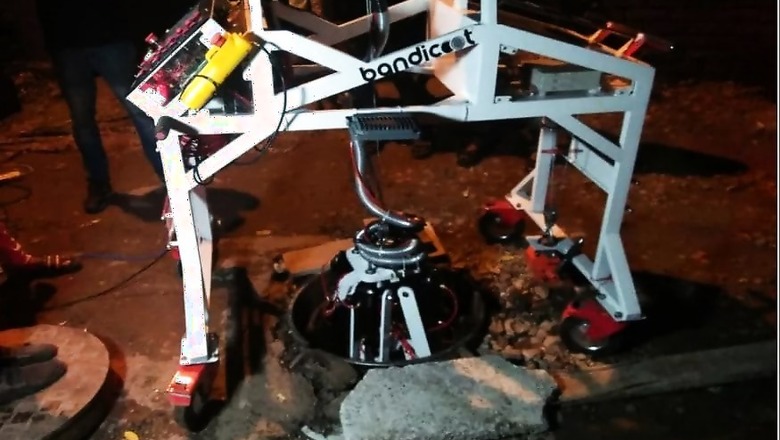
views
Lucknow: A necessary replacement to manual scavenging in India -- Bandicoot -- a type of manhole cleaning robot, will now come to the rescue against the banned yet prevalent practice in Lucknow.
The first of the five Bandicoots was recruited by the Minister for Urban Development Ashutosh Tandon and Mayor Sanyukta Bhatia on Thursday. The Lucknow Municipal Corporation (LMC) has worked out an arrangement between two private companies as a pilot project under the Smart Cities Mission.
LMC officials said that the job of cleaning drains in the city had now been delegated to Suez, a French-based utility company that operates in the water treatment and waste management sectors. It will be accompanied by a Kerala based start-up called Genrobotics. Together, they will be procuring Bandicoot.
The robot's interface is simple and operating it is as easy as playing a mobile game, said an official at Suez India. "It can perform every action of a man, inside the manhole," they said.
Marketing and business development, Genrobotics, Devesh Sharma said, "Bandicoot is successfully being used by eight states which includes Tamil Nadu, Andhra Pradesh, Maharashtra, Telangana, Haryana and Punjab. The robot was designed to end the evil of manual scavenging from India."
The partnership aims at the complete elimination of human intervention while cleaning manholes. "It is a step towards ending manual scavenging. If successful, the model will be replicated and expanded," said Bhatia.
The practice of manual scavenging still continues in India, despite it being banned 26 years ago, after the Employment of Manual Scavengers and Construction of Dry Latrines (Prohibition) Act, 1993. Countless manual scavengers have died due to inhalation of poisonous gases while inside the manholes.
Various studies have shown that the repeated handling of human excreta may lead to respiratory and skin diseases besides increasing the risk of anaemia, jaundice, trachoma, and carbon monoxide poisoning in the workers.












Comments
0 comment